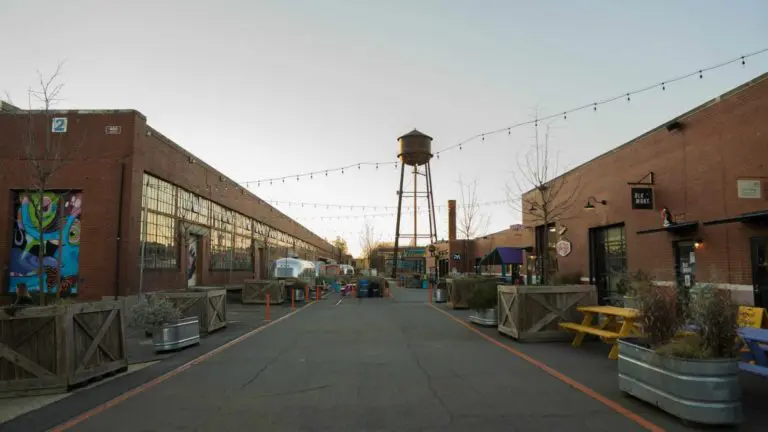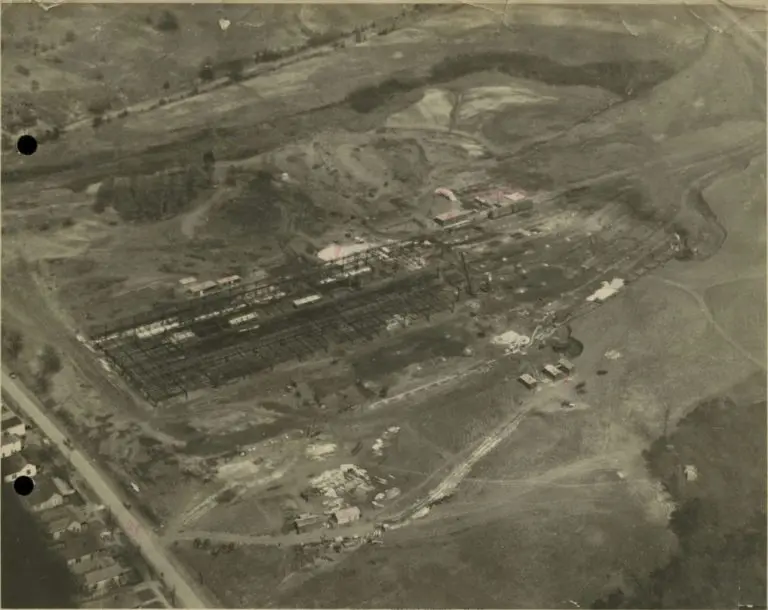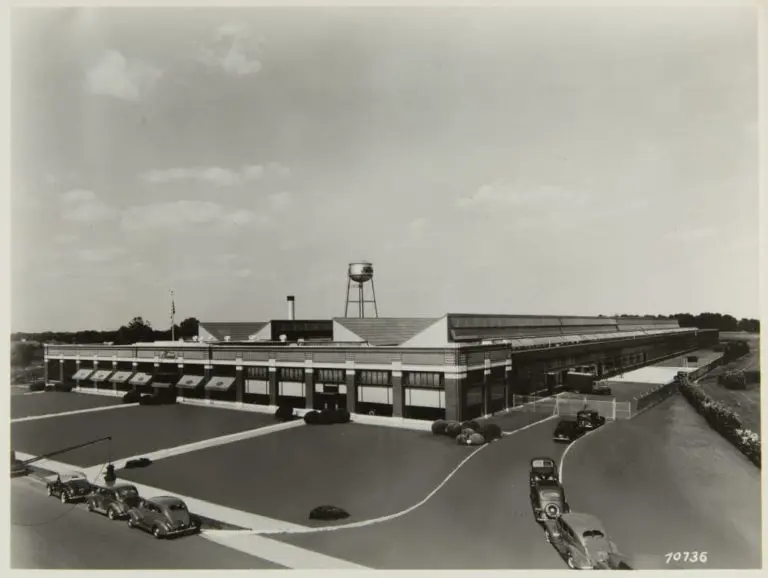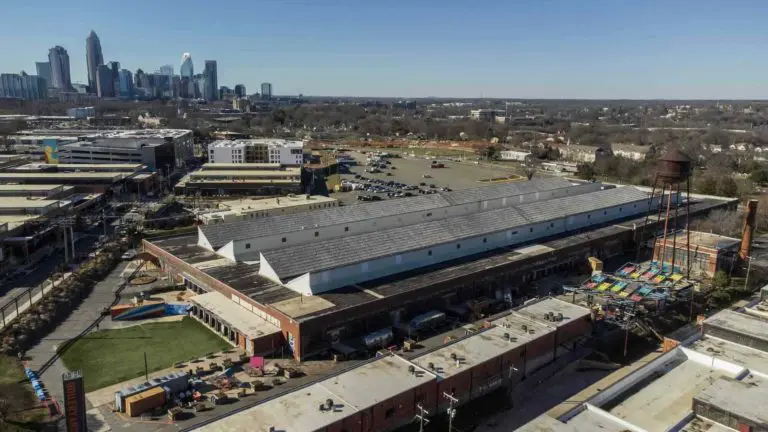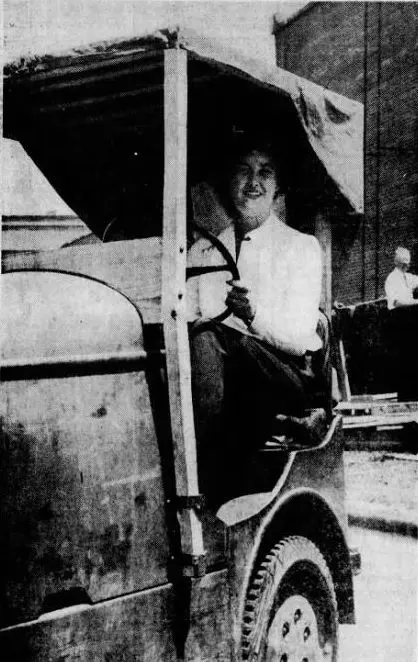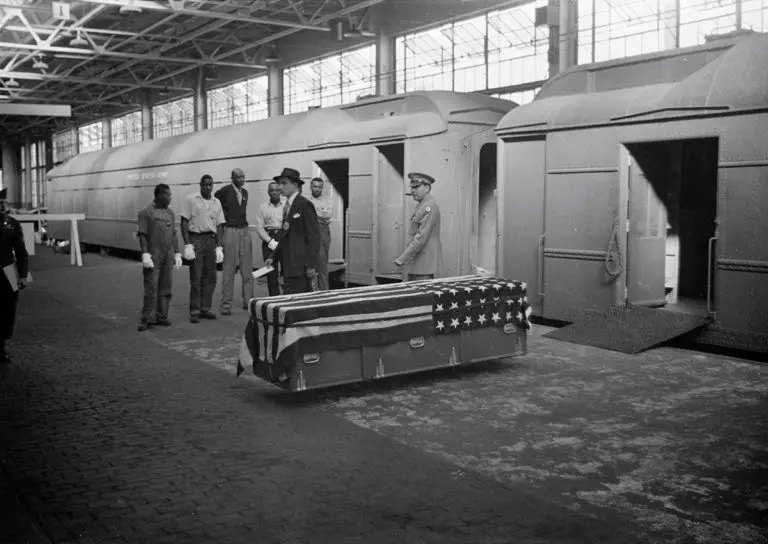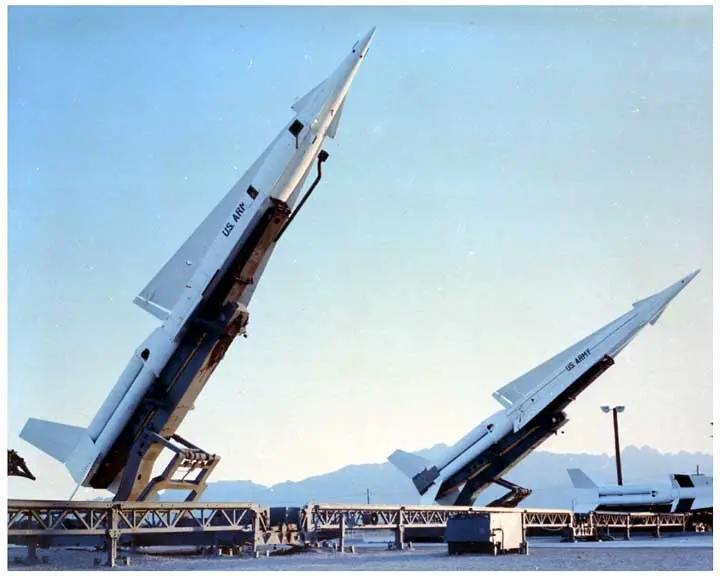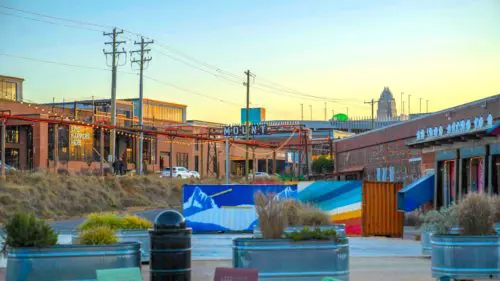We know Camp North End (300 Camp Rd, Charlotte, NC 28206) as a complex of food stalls, shops, and event spaces today. It is a cultural hub for artists and a place for many public art displays. Camp North End has always been a breeding ground for innovation.
Camp North End was originally a Ford Motor Company Assembly Plant, designed by Albert Kahn. The Ford Motor Company was known for using assembly lines to build cars, a process refined through years of trial and error. The final product was a mechanical conveyor belt. This new conveyor belt system required uninterrupted space to work at its highest capacity. So, the warehouse that Kahn designed featured large spaces for assembly, which we can still see today.
By 1925, the Ford Motor Company Assembly Plant was open and operating. The Ford Motor Company was known for creating the Model T, the nation’s first affordable automobile, which made car travel accessible for the middle class. The Model T was named Car of the Century by the Global Automotive Elections Foundation, an award given to the most influential car of the twentieth century. Over 15 million models were sold.
Unfortunately, Model T sales began to decrease; with the economy booming and competition rising, the Model T was outdone by its competitors. In 1927, the Model T was pulled from production, and the company introduced the Model A, which came too late. The stock market crashed in 1929, prompting Ford to close many factories, including their Charlotte location.
The Charlotte Ford Assembly Plant remained vacant until 1941, when the United States bought the space to open a new Quartermaster Depot for the Army. One of the main draws for this location was its proximity to railroads. The United States had not entered World War II when they purchased the property. However, the government was investing more in the military in the event they joined the war. The Army needed to easily store, sort, and transport supplies to bases. The military put $3 million into three new buildings and converted the Ford plant to suit their needs.
The Quartermaster Depot was one of nine significant depots that served the entire nation; this Depot serviced troops in Virginia, North Carolina, and South Carolina. In 1941, the military sent and stored $25 million worth of property and goods at the site. The Quartermaster Depot mainly employed the local community, with nearly 1,500 civilians on staff. Most of the employees were men, but when the US entered World War II, women began working at the Depot in the jobs men typically filled.
Colonel C.W. Woodward was in charge of the Depot, and he allowed women to enter training programs at the Depot that were outside of clerical or secretarial jobs. As more positions opened, women began filling those roles. Women were seen driving tractors and operating other forms of heavy machinery.
After the Second World War, the Depot was still necessary, as it took the military time to bring all the troops home, continue providing supplies, and sort all the returning equipment. The Depot became the military’s repair center, reclamation, and main classification east of the Mississippi River, which allowed the Depot to continue employing Charlotte residents.
The Depot also served a more morbid purpose of making all the arrangements for deceased servicemen from North and South Carolina. Military personnel at the Depot would contact the next of kin for each serviceman and bring their bodies home.
By 1947, the US Army only needed some of the warehouse space. The Department of Agriculture began storing tobacco there to stabilize tobacco prices in the United States. At the same time, some of the buildings were still used as a Depot to support the military.
From 1954 to 2015, Camp North End had several owners and tenants. Camp North End first became a missile production plant run by Douglas Aircraft. The plant produced Nike missiles. The name used today came from the US Army’s site description during that time: CAMP, short for Charlotte Area Missile Plant.
By 1967, the property had been purchased and was being used to produce Gama Goat trucks for the United States Army. Eckerd Drugs, Inc. purchased the property in 1977. Some current residents in the North End neighborhoods were employed by Eckerd, and continued to work there once the company was acquired by Rite-Aid in 2007. Rite-Aid used the site until they left Charlotte in 2015.
ATCO Properties purchased the 76-acre site from Rite-Aid in 2016 and opened it to the public as Camp North End in 2017. Camp North End has become one of Charlotte’s newest cultural and social hubs. Camp North End hosts events like Festival Dia de Muertos, an annual Day of the Dead Festival presented by the Levine Museum of the New South and the Latin American Coalition. Camp North End also hosted the Van Gogh Immersive Experience, as well as several film showings like their “Be Kind Rewind 90s Movie Series.”


